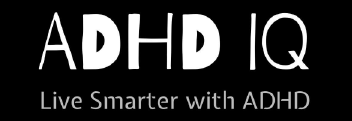Living with Attention Deficit Hyperactivity Disorder (ADHD) can be a challenging experience, both for those who have it and for their loved ones. However, the journey of managing ADHD is not only about personal growth but also about positively influencing the lives of those around you. Embracing strategies to manage ADHD can lead to a more harmonious and joyful life, benefiting everyone in your social and professional circles.
Improved Communication and Relationships
One of the most significant ways managing ADHD can impact others is through improved communication. ADHD often affects one’s ability to stay focused during conversations, leading to misunderstandings and frustration. By learning and implementing management strategies such as active listening, mindfulness, and cognitive-behavioral therapy (CBT), individuals with ADHD can enhance their communication skills. This improvement fosters stronger, more meaningful relationships with family, friends, and colleagues.
For instance, when you actively listen and engage in conversations, your loved ones feel heard and valued. This simple yet powerful change can reduce tension and foster a deeper connection, promoting a more supportive and loving environment. Moreover, better communication skills can enhance your social interactions, making gatherings and events more enjoyable for everyone involved.
Increased Productivity and Reduced Stress
ADHD can make it difficult to manage time, stay organized, and meet deadlines, which can create stress not only for the individual but also for those who rely on them. By adopting effective time management techniques and organizational tools, such as planners, reminders, and task lists, individuals with ADHD can significantly boost their productivity.
Increased productivity not only leads to personal satisfaction but also positively impacts those around you. At work, meeting deadlines and staying organized reduces the burden on colleagues and creates a more efficient and cooperative team environment. At home, managing responsibilities effectively can lead to a more balanced and stress-free household. Your ability to stay on top of tasks and commitments will be appreciated by those who depend on you, reducing their stress and enhancing overall harmony.
Emotional Regulation and Stability
ADHD can often come with emotional dysregulation, leading to impulsive reactions and mood swings. This can strain relationships and create a tense atmosphere. Learning techniques to manage emotions, such as mindfulness, meditation, and therapy, can lead to greater emotional stability.
When you are better able to regulate your emotions, you contribute to a more peaceful and supportive environment. Your loved ones will notice the positive change in your demeanor, making interactions smoother and more enjoyable. This stability can also create a ripple effect, encouraging those around you to adopt similar practices for emotional well-being.
Setting a Positive Example
Managing ADHD effectively sets a positive example for others, especially if you have children or younger family members who look up to you. Demonstrating resilience, adaptability, and a proactive approach to managing challenges can inspire others to take control of their own difficulties.
Your journey of managing ADHD can also foster empathy and understanding among those around you. As they witness your efforts and progress, they gain insight into the challenges of ADHD and the importance of support and patience. This shared understanding can strengthen bonds and promote a more compassionate and inclusive environment.
Conclusion
The joy of managing ADHD extends far beyond personal benefits. By improving communication, productivity, emotional regulation, and setting a positive example, you can significantly impact the lives of those around you. Embracing ADHD management strategies leads to a more harmonious, supportive, and joyful life for everyone in your circle. Remember, your journey is not just about overcoming challenges but also about creating a positive and lasting influence on the world around you.
